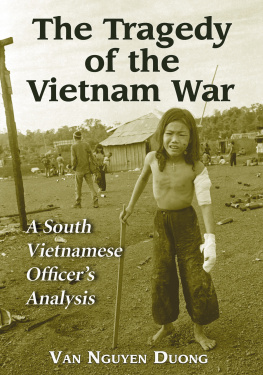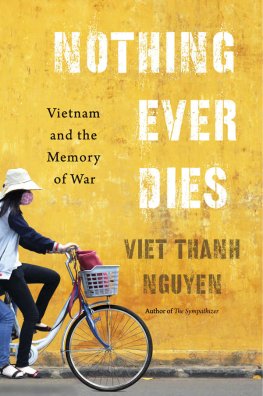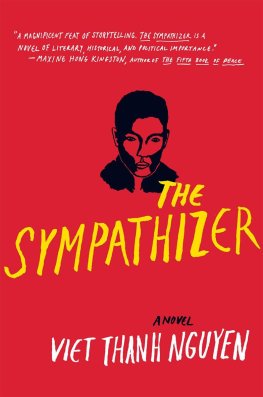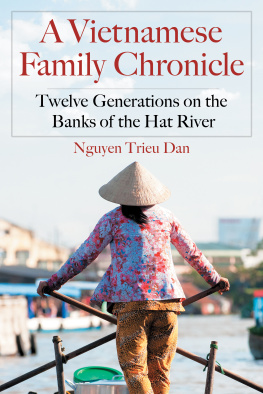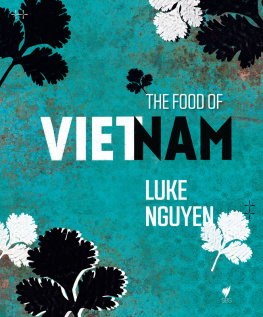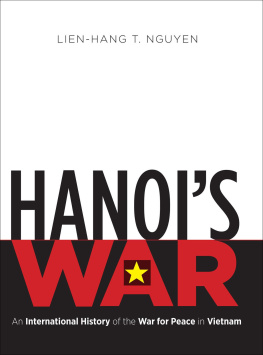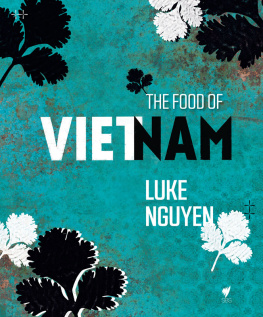van Nguyen Duong - The Tragedy of the Vietnam War: A South Vietnamese Officer’s Analysis
Here you can read online van Nguyen Duong - The Tragedy of the Vietnam War: A South Vietnamese Officer’s Analysis full text of the book (entire story) in english for free. Download pdf and epub, get meaning, cover and reviews about this ebook. year: 2014, publisher: McFarland, genre: Politics. Description of the work, (preface) as well as reviews are available. Best literature library LitArk.com created for fans of good reading and offers a wide selection of genres:
Romance novel
Science fiction
Adventure
Detective
Science
History
Home and family
Prose
Art
Politics
Computer
Non-fiction
Religion
Business
Children
Humor
Choose a favorite category and find really read worthwhile books. Enjoy immersion in the world of imagination, feel the emotions of the characters or learn something new for yourself, make an fascinating discovery.
- Book:The Tragedy of the Vietnam War: A South Vietnamese Officer’s Analysis
- Author:
- Publisher:McFarland
- Genre:
- Year:2014
- Rating:5 / 5
- Favourites:Add to favourites
- Your mark:
- 100
- 1
- 2
- 3
- 4
- 5
The Tragedy of the Vietnam War: A South Vietnamese Officer’s Analysis: summary, description and annotation
We offer to read an annotation, description, summary or preface (depends on what the author of the book "The Tragedy of the Vietnam War: A South Vietnamese Officer’s Analysis" wrote himself). If you haven't found the necessary information about the book — write in the comments, we will try to find it.
van Nguyen Duong: author's other books
Who wrote The Tragedy of the Vietnam War: A South Vietnamese Officer’s Analysis? Find out the surname, the name of the author of the book and a list of all author's works by series.
The Tragedy of the Vietnam War: A South Vietnamese Officer’s Analysis — read online for free the complete book (whole text) full work
Below is the text of the book, divided by pages. System saving the place of the last page read, allows you to conveniently read the book "The Tragedy of the Vietnam War: A South Vietnamese Officer’s Analysis" online for free, without having to search again every time where you left off. Put a bookmark, and you can go to the page where you finished reading at any time.
Font size:
Interval:
Bookmark:


McFarland & Company, Inc., Publishers
Jefferson, North Carolina
LIBRARY OF CONGRESS CATALOGUING DATA ARE AVAILABLE
BRITISH LIBRARY CATALOGUING DATA ARE AVAILABLE
e-ISBN: 978-0-7864-8338-9
2008 Van Nguyen Duong. All rights reserved
No part of this book may be reproduced or transmitted in any form or by any means, electronic or mechanical, including photocopying or recording, or by any information storage and retrieval system, without permission in writing from the publisher.
Cover photograph: A cross dangling from her neck, a 12-year-old girl with multiple wounds uses a stick to hobble through battle debris to an evacuation helicopter in South Vietnam, June 19, 1965 (AP Photo/Horst Faas)
Box 611, Jefferson, North Carolina 28640
My father once said to me, To become a dignified career soldier, youd better not only look to fight your enemy but also stick with your colleagues in the army and devote yourselves to the service and care of unfortunate people who suffer physical and spiritual losses in this cruel and destructive war. Never associate with people who compete for power.
During the war in Vietnam I did my best to realize my fathers instructions, but I failed, as we soldiers of the Republic of Vietnam Armed Forces were forced to give up our arms on a tragic day in April 1975.
Now, more than three decades after the end of the war, I still think of my old friends and colleagues among the millions in that valiant army, including those who sacrificed their lives on the battlefield, those who still endure a miserable existence in Vietnam under the cruel communist regime, and those who are in exile overseas. I am trying in another way to contribute by writing this book with the intent of making clear the nuances of our defeat and of amplifying the just and noble causes of South Vietnamese soldiers who fought against the Vietnamese communists in that critical war. We maintain our pride of having once served in our armed forces to pursue aspirations of independence, justice, and freedom for our people. An army may be disbanded but its spirit is eternal. Such is the case of the Republic of Vietnam Armed Forces.
RVNAF soldiers were trusted, admired, and loved by the people of South Vietnam. Their heroic images are engraved on my memory and inspired me to document their merits and glories as well as their sufferings. They fought for the people, but they were betrayed by their political leaders and their cunning allies, and then treated cruelly by their enemy. These events all made them suffer deeply. Any story of a South Vietnamese soldier and his family has the power to bring forth emotion and tears from virtuous and humane people.
First and foremost, I would like to thank all South Vietnamese soldiers and express my highest admiration and respect for their sacrifices and devotion to the country. I would like to also express my heartfelt gratitude to my parents for their clear-sighted instructions and profound love.
I am also grateful to four of my friends who helped me in the past ten years: Cung Tram Tuong, Do Ngoc Uyen, Sao Bien, and Nguyen Cau.
In addition, I would certainly like to express my gratitude for the advice and support of Professors Nguyen Xuan Vinh, Nguyen van Canh, and Pham van Phuc. Deep thanks are also conveyed to Todd and Kim Elvyn and Gordon Yamaguchi. Without their help I could not have realized and completed my work.
Finally, I would like to thank my lovely wife, who has endured her humble life while encouraging me, believing that I would satisfactorily finish my exhaustive work. She is the constant and profound source of love and assistance in my life.
Again, thank you all.
Good policies and well planned strategies, as well as economic and military strengths, usually determine the outcome of conflicts between opposing forces. Paradoxically, the Vietnam War defied this established rule. Public opinion contended that the United States, after committing to the Vietnam War for almost a decade, might not want to subdue the underdog Democratic Republic of Vietnam (or the Communist North Vietnam) by military force due to several internal problems and international and diplomatic reasons. However, the realities of signing the 1973 Paris Peace Treaty with the Vietnamese Communists, withdrawing combat forces from Vietnam, abandoning a longtime allythe Republic of Vietnam (or the Free South Vietnam)and finally rescuing the remaining military personnel and diplomatic corps by Operation Frequent Wing (helicopters) on top of the U.S. Embassy building just hours prior to the final Communist attack on Saigon, led to the contradictory interpretation that the United States had lost the war in Vietnam. This was a paradox. And this paradox remains a mystery of American foreign policies toward Southeast Asia and Vietnam during that period and has kindled numerous debates, discussions, and symposiums for decades after the wars end. Historians, observers, politicians, and strategists have microscopically dissected American policies and strategies in Vietnam as carried out by several presidents. However, no satisfactory answer has emerged.
After suffering with shame and confusion day and night for thirteen years in different communist concentration camps after the fall of South Vietnam in April 1975, I became determined to penetrate to the heart of these matters to clarify the dark hints in my mind.
I was released from the communist concentration camps in April 1988 and came to America in September 1991. This was a blessed opportunity for me to realize my longing for clarity. After seven years of study and research, I began to write my book. First of all, I saw the United States as committed to the war, but without the will to win it. Thus, the Vietnam War seemed to be illogical, and I call it an Off-Design War. Then, for five continuous years, I put everything that I objectively knew about the war into my book.
In addition, I wanted to share some war experiences with younger Vietnamese generations in exile to elucidate important issues, such as the fighting competence of the South Vietnamese Armed Forces. In my opinion, the Republic of Vietnam Armed Forces (RVNAF) would have ultimately defeated the North Vietnamese Army (NVA) or the Peoples Army of Vietnam (PAVN) of Communist North Vietnam in this long and difficult war if only we had been continuously supported by the United States as the PAVN was supported by both the Soviet Union and China. Neither the French Expeditionary Forces nor the American forces could have done this, since this kind of war, in which time was the decisive factor, would not be suitable to any free-world nation. (Recently, the war on terror has been based on the sensitive factor of space. Yet, this has also proven to be a big problem for free-world nations, especially the United States and Britain.)
I had an intense desire to write a book on the war in Vietnam because I was one among millions of South Vietnamese soldiers who had endured it and suffered its destructions, both materially and spiritually. I would like to expose our lonely distress and resentment so the world can become more aware of the pains of those millions of anonymous South Vietnamese soldiers who had sworn to give their lives to protect their land, their democracy, and their national colors. Tens of thousands of RVNAF heroes fought and sacrificed on the battlefield to safeguard freedom for South Vietnam and prosperity for other nations in Southeast Asia.
Next pageFont size:
Interval:
Bookmark:
Similar books «The Tragedy of the Vietnam War: A South Vietnamese Officer’s Analysis»
Look at similar books to The Tragedy of the Vietnam War: A South Vietnamese Officer’s Analysis. We have selected literature similar in name and meaning in the hope of providing readers with more options to find new, interesting, not yet read works.
Discussion, reviews of the book The Tragedy of the Vietnam War: A South Vietnamese Officer’s Analysis and just readers' own opinions. Leave your comments, write what you think about the work, its meaning or the main characters. Specify what exactly you liked and what you didn't like, and why you think so.

